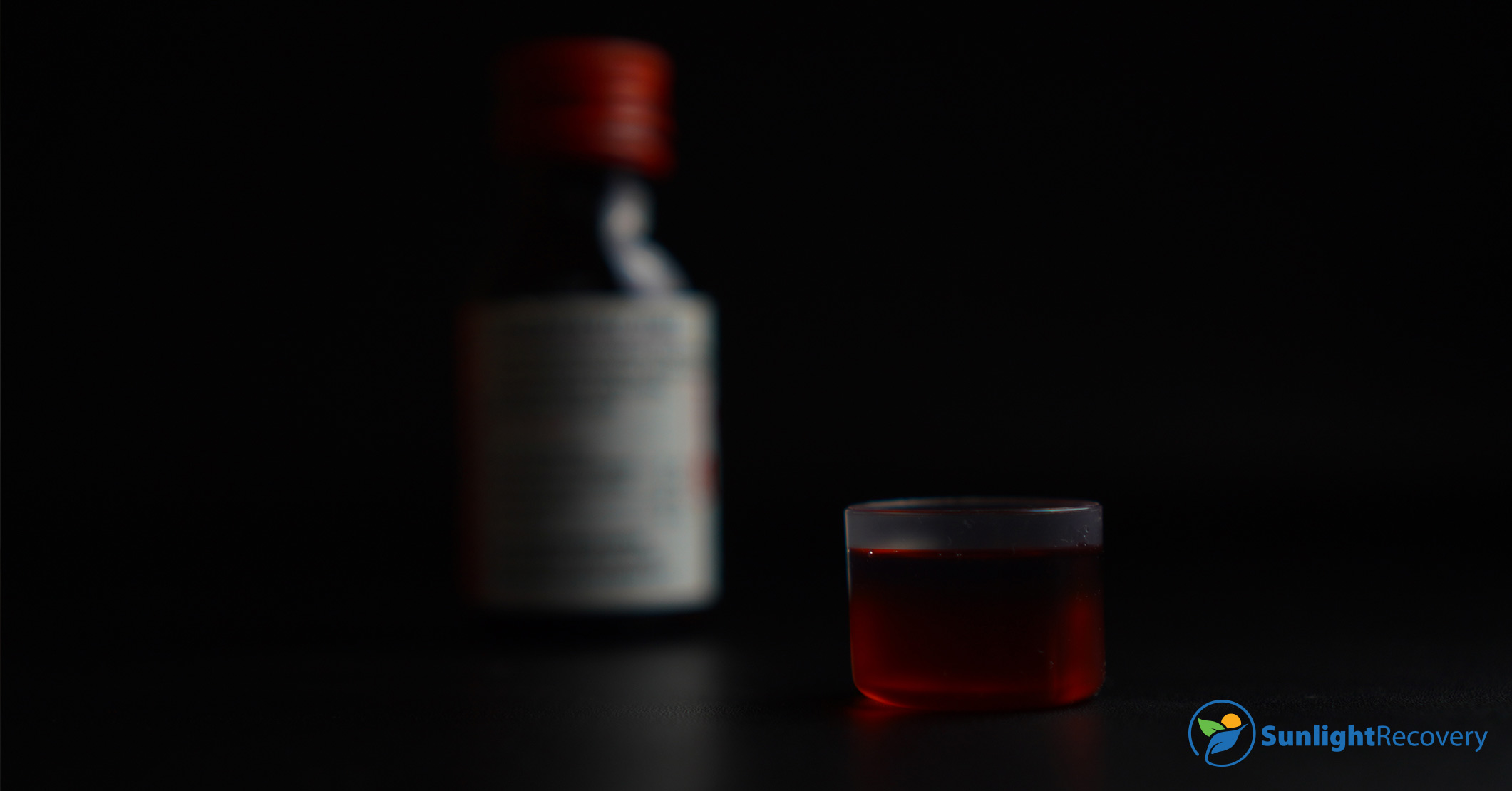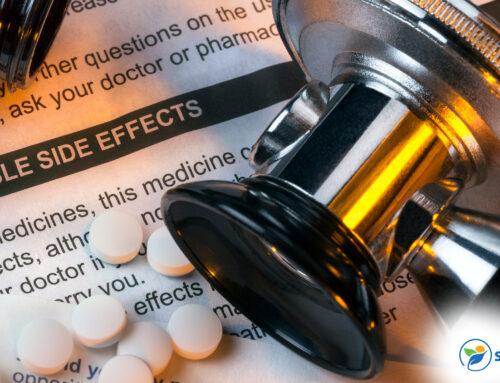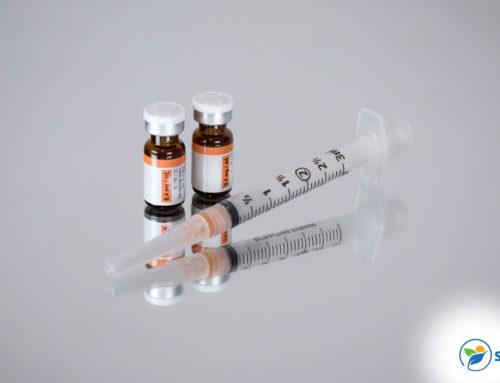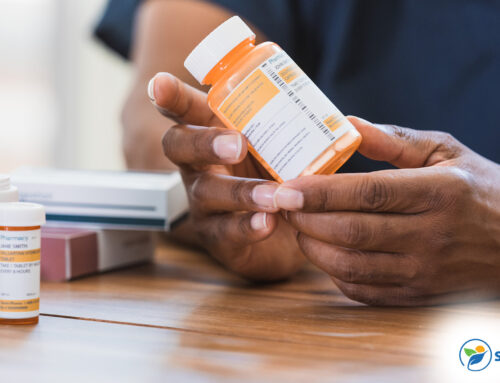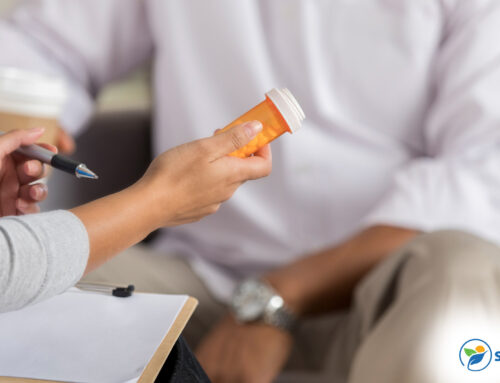A stubborn cough can make life difficult, and many of us reach for over-the-counter remedies to find relief. However, it’s essential to understand the risks and benefits of these medications. Taking cough medicines incorrectly or getting high off of Dayquil or another cough syrup can cause serious health problems. Below, we’ll explain how to take cough syrups safely, explore the risks of an overdose and explain what to do if you suspect an overdose in yourself or someone else.
Understanding Cough Syrup Ingredients
Many cough syrups contain cough suppressant drugs to reduce your cough reflex. Dextromethorphan, also known as DXM, is one of the most common cough-suppressant medications. It reduces brain activity associated with coughing and can help make you more comfortable, but it won’t treat the underlying cause or affect your recovery time.
Some cough and cold remedies also contain expectorants, such as guaifenesin. Expectorants make the mucus in your airways thinner so it’s easier to cough up. Like cough suppressants, expectorants don’t treat the condition causing your cough and won’t help you recover faster.
Depending on the formula, your cough syrup may contain other ingredients. Common cough syrup ingredients include:
- Antihistamines to reduce allergy symptoms and relieve nasal congestion
- Nasal decongestants, such as phenylephrine hydrochloride
- Acetaminophen or naproxen to reduce pain and fever
Many over-the-counter cough remedies once contained codeine. Codeine is an opioid painkiller, and it’s an effective cough suppressant. However, it’s often habit-forming and can cause severe breathing issues if you’re sensitive to the medication or take too much. Therefore, medicines containing codeine are no longer available without a doctor’s prescription.
Proper Dosage and Usage
The ingredients in over-the-counter cough syrups are generally safe if you take the correct dose. However, it’s important to check with your health care provider before taking cough medicine if you’re allergic to certain medications. Dosage guidelines vary between products, and you should follow the instructions on the medication leaflet closely. Don’t take cough medications longer than recommended — if your symptoms worsen or don’t improve, consider consulting your doctor for advice.
Remember that cough syrups often share ingredients with other over-the-counter medications. Therefore, you risk accidentally taking too much of a particular drug if you take cough syrup alongside other cold and flu remedies. For instance, you shouldn’t take cough syrups containing acetaminophen with other acetaminophen medications.
The manufacturer may recommend taking your medication at night if it contains a drowsy antihistamine. Taking a drowsy antihistamine during the day can be dangerous because it may impair your ability to drive or operate machinery safely. Furthermore, it can make it harder to focus on your everyday activities.
Getting High Off of Dayquil: Risks of Overdose
Taking cough syrup can help relieve discomfort and allow you to sleep better when you’re sick. Unfortunately, a quick online search shows that some people abuse these medications, with terms such as “can Mucinex get you high” and “how to get high on cough syrup” gaining popularity.
Generally, people who abuse cough syrup do so to experience the psychoactive effects of taking too much DXM. DXM is rarely dangerous when taken correctly, and you’re highly unlikely to experience psychoactive side effects if you use the recommended dose. However, drinking large amounts of DXM syrup or taking too many tablets containing DXM can cause euphoria, floating sensations and auditory or visual hallucinations.
Taking too much DXM can cause an overdose. Some people are more likely to overdose on DXM than others because certain individuals find it harder to metabolize the drug. Symptoms of an overdose often include:
- Coordination issues
- High blood pressure
- Nausea and vomiting
- Slurred speech
- Sweating
Doctors can often treat DXM overdoses successfully in the emergency room, especially if you seek help quickly. However, getting high off of Dayquil presents other dangers because it can make you physically uncoordinated and impair your judgment. Therefore, you’re more likely to experience an accident or make risky decisions during a DXM overdose.
The other ingredients in cough medicines could cause health problems if you take more than the recommended dose. The consequences of overdosing on painkillers, antihistamines and expectorants may include liver problems, seizures, rapid heart rate and even coma at higher doses.
Not all cough syrup overdoses result from deliberate abuse. For example, failing to keep track of your doses or taking more medicine to treat severe cough symptoms could lead to taking too much by accident. If over-the-counter medications don’t help at the correct dose, seek advice from a health care professional. They can diagnose the cause of your symptoms and recommend a more effective treatment.
Combining With Other Substances
Combining cough syrup with other medications can be dangerous and make an overdose more likely. Always check the ingredients in any other medications to ensure they don’t contain the same drugs before combining two or more medicines. Your pharmacist or doctor can recommend safe combinations if you need additional relief.
Taking cough syrups with alcohol or other illegal drugs increases the likelihood of an overdose and could even be fatal. Combining medications containing DXM with antidepressants can also cause life-threatening complications.
Seeking Medical Help
Knowing the effects of a cough syrup overdose can help you recognize the signs in yourself or someone else. If you take too much cough medicine, you should seek urgent medical assistance, even if you feel well.
Generally, it’s safest to visit your nearest emergency room as soon as possible. However, you can also call the Poison Help hotline at 1-800-222-1222 to contact your local poison center. Your poison center representative can provide free urgent and nonurgent advice on what to do if you suspect a cough syrup overdose and overdose prevention.
Gathering certain information can make it easier for the emergency team to treat you or your loved one. If possible, take the medication packaging with you and provide the following information:
- The person’s height and weight
- Details of any health conditions and prescribed medications
- How much medication the person took and what time they took it
- Ingredients and strength of the cough syrup
Get Help Today
If you’re concerned about cough syrup abuse in yourself or someone else, getting the right help is essential. The experts at Sunlight Recovery are ready and waiting to support you through your recovery. Contact us today to schedule a consultation, learn more about treatment options and start your journey to a bright future.


